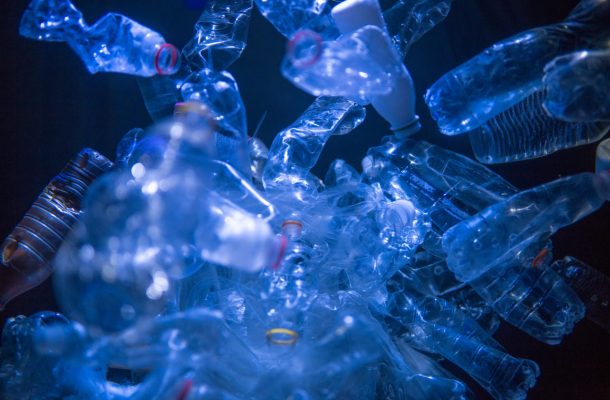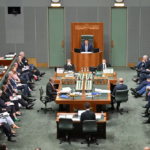Can we make plastic fantastic?

Dave Hakkens is a man on a mission. Actually, he’s a man who’s been on a mission for some time now. The Dutch designer was celebrated globally back in 2013 after he developed a modular and sustainable smartphone concept called Phonebloks.
But it’s what he did next that cemented his reputation. Hakkens turned his attention to plastics. Or rather, he returned to an idea called Precious Plastic that he had when he was a student at The Design Academy in Eindhoven.
Hakkens was concerned by the volume of plastic waste and why more of it wasn’t being recycled into useful products (just 10 per cent of the plastic we use is recycled).
Last year, the United Nations warned that unless people changed their habits there would be more plastic than fish, by weight, in the world’s oceans by 2050, and a University of Georgia study calculated that humans have created 8.3 billion metric tons of plastics since large-scale production of the synthetic materials began in the early 1950s.
If current trends continue, it’s forecast that roughly 12 billion metric tons of plastic waste would be in landfills or the natural environment by 2050.
To encourage more plastic recycling, Hakkens developed and built a simple set of four machines that could turn plastic into pellets and then into useful products: tableware, lampshades, vases and so on.
He then published the machine blueprints online for anyone to download and build, using simple parts and manufacturing techniques. Now, people (designers) around the world are turning plastic trash into functional products using his design – from China, the Ukraine and Thailand, to London, Seoul and Spain.
And at Monash University.
Inspired by Hakkens and the global community he’s built to fight plastic pollution, 25 Monash undergraduate and graduate students from the engineering and art and design faculties have expanded on Hakkens’ work and created their own Precious Plastic chapter.
“We found Dave Hakkens’ download kit online, and this laid the foundations for our final-year engineering project,” says Anthony Ngo, product manager at Precious Plastic Monash. The team aims to modify the four machines to be safer, more user-friendly and educational.
To do this, it’s integrating each of the machines into a single transportable unit that can be used for production and community engagement.
A 1m x 1m pallet is the foundation of the unit, allowing it to be transported using a pallet jack, forklift or trailer. It features flip-out workbenches for preparation and post-processing of products, and has a central tower that accommodates the electronics and controllers, as well as video display screens.
The team worked hard to ensure the unit was ready to showcase at Monash Open Day on August 5.
Scott Wordley is a Monash mechanical and aerospace engineering lecturer, and one of the academic supervisors of the new Precious Plastic student group.
He says one of the great benefits of the compact design is the ease with which it can be transported, opening the possibility of travelling to community roadshows, fairs and expos, and schools.
He says the Precious Plastic global community is “experiencing a huge amount of success, having recently secured a €300,000 grant”, and that its resources “provide the perfect toolkit to engage students and the general public to help fight the war on plastic waste and change peoples’ perceptions about how and where we use these materials”.
“We’re not going to recycle our way out of this plastic problem, and there are limits to what these (amazing) little machines can do,” he says.
“But changing the way people think about plastic and consume it can be done at scale; it just takes a bit of information, some interaction with the machines and teams, and a sample to go away with, and we’ve done our job.
“We plan to develop engagement activities and experiences to do just this.”
“Changing the way people think about plastic and consume it can be done at scale.”
He says while most community groups or individuals would struggle with the financial and technical undertaking of building a unit, universities are well-positioned to be a focal point for this technology, with great facilities, engineering students keen to take up the challenge, and the space to get it up and running.
“This project ticks so many boxes for the kind of experience we’re trying to give our students,” he says. “They get to use their engineering design, manufacturing and materials skills to manufacture valuable products from materials that we currently consider to be environmentally destructive waste.
“They also get to take that message to the community, to educate people and lobby for policy changes, like the recent banning of single-use plastic bags, which can lead to a significant reduction in the amount of plastic waste that we generate.
“The end game is to drive a shift to more sustainable and reusable materials or designs.”
This article was first published on Monash Lens. Read the original article
Open Forum is a policy discussion website produced by Global Access Partners – Australia’s Institute for Active Policy. We welcome contributions and invite you to submit a blog to the editor and follow us on Twitter, Facebook, Linkedin and Mastadon.












